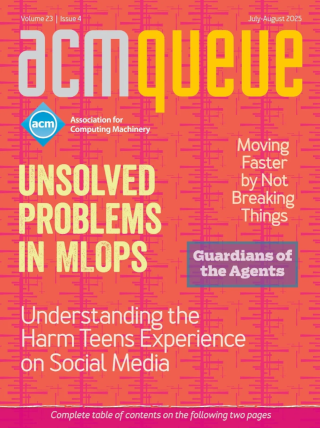
The Network is Reliable:
An informal survey of real-world communications failures
The network is reliable tops Peter Deutsch’s classic list, "Eight fallacies of distributed computing", "all [of which] prove to be false in the long run and all [of which] cause big trouble and painful learning experiences." Accounting for and understanding the implications of network behavior is key to designing robust distributed programs; in fact, six of Deutsch’s "fallacies" directly pertain to limitations on networked communications. This should be unsurprising: the ability (and often requirement) to communicate over a shared channel is a defining characteristic of distributed programs, and many of the key results in the field pertain to the possibility and impossibility of performing distributed computations under particular sets of network conditions.
Privacy, Anonymity, and Big Data in the Social Sciences:
Quality social science research and the privacy of human subjects requires trust.
Open data has tremendous potential for science, but, in human subjects research, there is a tension between privacy and releasing high-quality open data. Federal law governing student privacy and the release of student records suggests that anonymizing student data protects student privacy. Guided by this standard, we de-identified and released a data set from 16 MOOCs (massive open online courses) from MITx and HarvardX on the edX platform. In this article, we show that these and other de-identification procedures necessitate changes to data sets that threaten replication and extension of baseline analyses. To balance student privacy and the benefits of open data, we suggest focusing on protecting privacy without anonymizing data by instead expanding policies that compel researchers to uphold the privacy of the subjects in open data sets. If we want to have high-quality social science research and also protect the privacy of human subjects, we must eventually have trust in researchers. Otherwise, we’ll always have the strict tradeoff between anonymity and science illustrated here.
Securing the Tangled Web:
Preventing script injection vulnerabilities through software design
Script injection vulnerabilities are a bane of Web application development: deceptively simple in cause and remedy, they are nevertheless surprisingly difficult to prevent in large-scale Web development.



